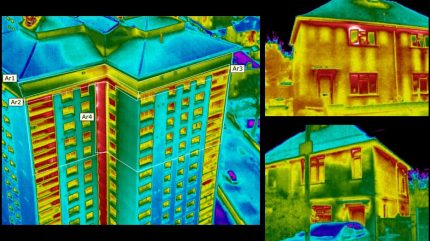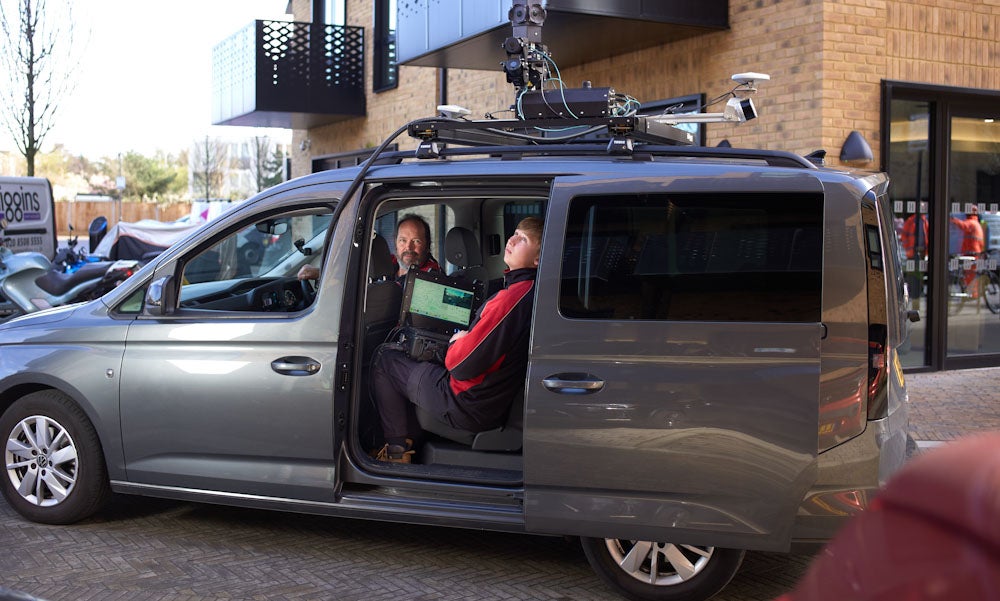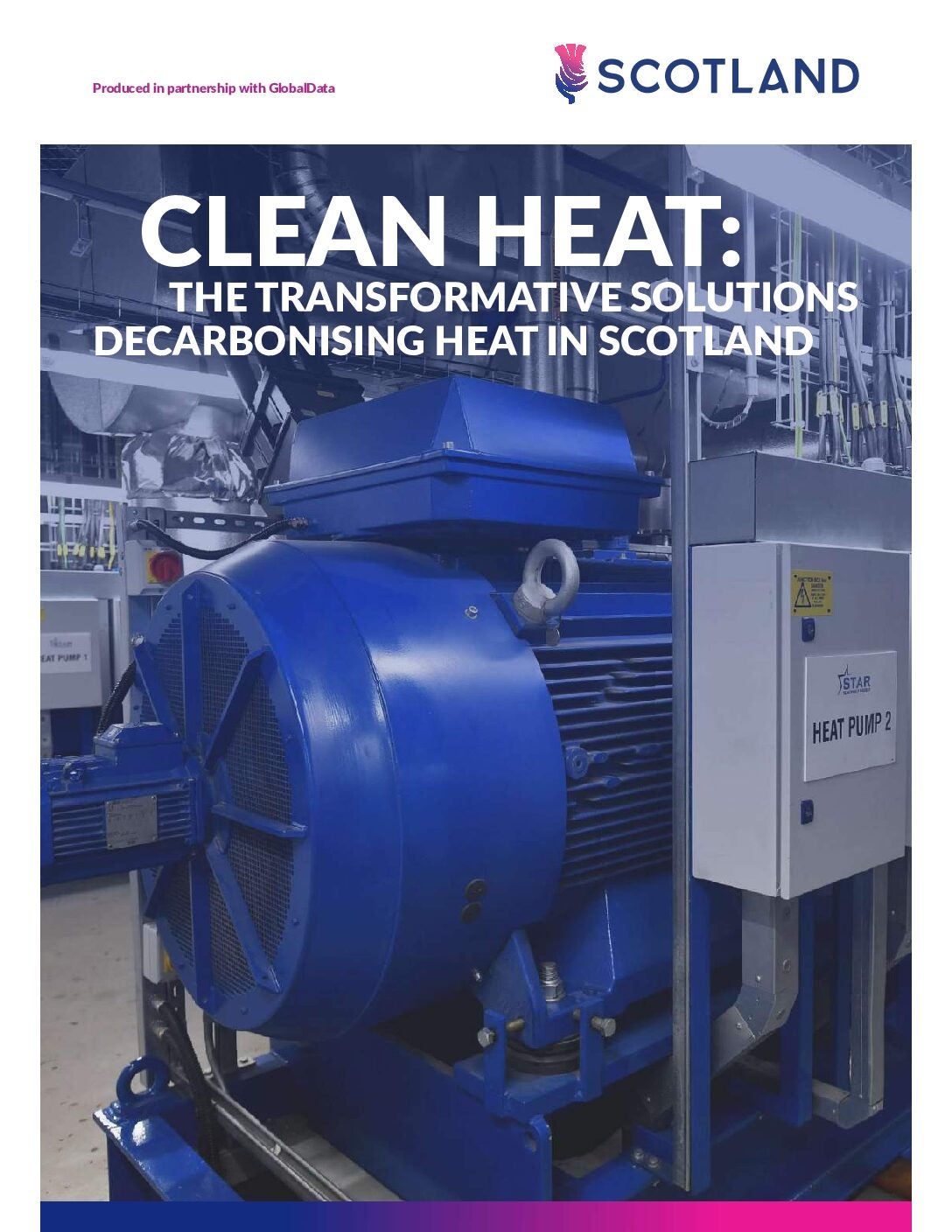
With fuel poverty affecting nearly one in four Scottish households, innovative tech solutions are emerging as robust tools to address critical social challenges. Innovations in data and smart platforms are also helping to improve the energy efficiency of buildings in Scotland and bring down heating bills.
Given the scale of the challenge of decarbonising heat, a combination of technologies must contribute to the same goal. Around 70 Scottish companies have been identified in this space, ranging from large-scale solutions to smaller innovations.
While heat pumps and large-scale district heating networks may attract the headlines, the pivotal role of digital tech cannot be overlooked in the clean heat drive. Smart technologies play a crucial role in advancing clean heat by optimising energy efficiency, reducing emissions, and enhancing user control.
AI solutions can tackle energy inefficiency issues
Tech solutions can deliver vital insights to identify areas at risk of fuel poverty. One company at the forefront is Edinburgh-based UrbanTide. The company’s advanced AI platforms are transforming how organisations identify and support vulnerable communities.
Founded in 2014 by Simon Tricker and Stevie Revill following their collaboration on Glasgow’s £24m smart city programme, UrbanTide has established itself as a positive force in data-driven social impact. Operating from the Bayes Centre, Scotland’s key AI research and innovation hub at the University of Edinburgh, the company bridges the gap between advanced technology and urgent social needs.
“The real challenge isn’t just the existence of fuel poverty, but efficiently directing available resources to those most in need,” explains Simon Tricker. “That’s where our technology makes a critical difference.”
UrbanTide began with its flagship platform uSmart, developed with an initial grant funding from Scottish Enterprise. This data sharing and AI platform laid the foundation for the company’s approach to leveraging data for social good.
Building on this success, the company recently unveiled uZero, an innovative platform supported by Innovate UK through its Modernising Energy Applications Programme. The system analyses data from multiple sources, including smart meters, to help local authorities, housing associations, and energy companies target retrofit grants more effectively.
“uZero focuses specifically on helping people who can’t pay and are struggling with the increasing energy bills and the cost-of-living crisis,” adds Tricker. “We pull data from various sources, clean it, analyse it, and present actionable insights through a secure dashboard. This enables our customers to extract information that aligns perfectly with their different grant or support funds.”
Predictive intelligence for energy-efficient homes
Since 2018, UrbanTide has integrated advanced machine learning and AI to deliver deeper insights. These technologies not only identify current areas of fuel poverty but can also predict potential future risk zones.
One of the platform’s notable features is its ability to create a digital twin of communities, generating heat map visualisations down to street level with monthly updates. This granular view allows organisations to deploy resources with precision.
The impact has been considerable. In parts of the UK, UrbanTide’s technology has dramatically increased referral rates for retrofit grants from a mere 1% to 34%.
“There’s approximately £12bn in UK grants dedicated to improving home energy efficiency, but the deployment of these funds is very uneven,” adds Tricker. “Our goal is to make this process more effective and efficient, achieving higher referral and success rates. This approach can make a significant impact on the cost-of-living crisis by ensuring homes are truly energy efficient.”
Thermal surveys to improve the energy efficiency of homes
For a closer look at the energy efficiency gaps of individual buildings, a detailed survey is required. Thermal imaging cameras can identify where heat is escaping from a property. Traditionally, analysis of images would be done manually and can be time-consuming.
However, Scottish company IRT Surveys is accelerating the analysis and inspection processes through the innovative use of AI. The Dundee-headquartered company has more than 20 years of conducting thermal surveys using specialist cameras, with the more recent addition of its newly developed MappIR van and AI capabilities enabling rapid analysis.
The second aspect of IRT’s service is a data platform where the company can model the retrofit of homes for clients who are predominantly local authorities and housing associations. Through its surveys, IRT can measure the thermal performance of thousands of homes across a housing stock and suggest those that need to be prioritised.
“We’re converting that data into metrics and ranking and rating the properties in terms of thermal performance,” says Lisa Cairns, business development and improvement manager at IRT Surveys. “We then highlight any defects and insulation issues so it’s easier for the client, as well as ranking them in terms of defects and the condition of the insulation.
“Asset data and EPC data are good to a certain level, but you don’t know the condition of these homes until you thermally survey them,” she adds.
Creating growth in quality retrofits and jobs in clean heat
Thermal surveys are conducted before and after retrofits to confirm the quality of workmanship and ensure there are no issues that could cause damp or mould in future.
“We have found over the last two or three years that the quality of retrofit is getting better,” adds Cairns citing factors such as the new British Standards Institute’s (BSI) Publicly Available Specification (PAS) 2035, which is intended to create requirements for high quality and safe retrofit projects.
Alongside this, there is the Retrofit Academy with hubs across the UK, including Dumfries in Scotland. The academy provides training for retrofit assessors and coordinators in local authorities and housing, as well as offering upskilling opportunities.
Furthermore, IRT is a prime example of how the use of AI is creating jobs. Since using the technology, IRT’s team of analysts has grown.
“It’s helped our business and the thermal services to grow rather than taking away jobs,” says Cairns. “[AI has] enabled us to provide more advanced services. Our analysts aren’t tied up for hours and hours processing images. They’re now in meetings with clients, presenting the results and helping them understand the implications.”

Support for homeowners seeking retrofit finance
With its many historic buildings, Scotland presents a unique challenge for energy-efficient homes. “We have specific circumstances in Scotland. Many people live in tenement flats – pretty leaky ones – and they can’t put a heat pump in,” says Robin Peters, CEO and founder of Edinburgh-based Snugg, provider of a smart platform created to address issues with energy efficiency for homeowners UK-wide.
Peters combined his background as an engineer and understanding of thermodynamics with his experience working financial experience to develop the company’s solutions. “We need to get solutions for these homes,” he adds.
For homeowners, there can be some confusion when it comes to retrofits and energy efficiency measures. Perceived high costs can be a major barrier. Peters says the traditional applications for retrofit finance can be confusing, lengthy, and paper-based.
“We’re trying to make energy-efficient homes simple and affordable for everyone,” says Peters. “The biggest thing is that people are confused – 75% of people who come to Snugg either just want to do something cheap, quick, or they are completely confused in terms of what to do,” he adds.
Optimising home retrofits and carbon savings
By simply entering their postcodes in the Snugg online platform, users receive suggestions for practical improvements they can make to improve the energy efficiency of their homes.
Snugg seeks to demystify grants and offer homeowners access to loans with better interest rates for energy efficiency measures and finance options that suit individual preferences.
The platform includes an AI-supported chatbot to provide intuitive advice and connect homeowners with community groups for support, as well as contact details of trusted contractors nearby to carry out the retrofit works.
“We take the two elements of what’s right for a home and what is right for a homeowner,” adds Peters. “By combining a better tariff with some of these measures, that’s where you really get a dramatic improvement.”
Notably, Snugg is starting a novel “carbon cashback” system to allow homeowners to monetise their carbon savings by effectively receiving payments from businesses seeking to offset carbon emissions. The company says this type of solution is a world-first and can incentivise home improvements by receiving payments in return.
“We get a precise view of how much carbon has been saved, which means it’s a high-value credit and means it’s worth more to give people more money,” adds Peters. “Give us access to the smart meter and we’ll do the heavy lifting.”
The advantages of developing clean heat technologies in Scotland
To develop the necessary digital solutions for clean heat, Scotland offers a range of opportunities to partner with specialists and world-class institutions. The country’s relatively small size suits connections and collaboration. “The size of the Scottish economy does make it easier to meet most of the people you need to know pretty quickly,” adds Peters.
Snugg is also part of FinTech Scotland and engages with various financial institutions and universities for support and collaboration. His company worked with the carbon economics team at the University of Edinburgh Business School to develop the “carbon cashback” scheme.
Scotland’s strong talent pool of data scientists and engineers across its globally renowned universities presents opportunities for partnerships. For example, IRT worked with Robert Gordon University to develop the AI capabilities now in-use at the company. IRT also has a history of collaboration with Scotland’s innovation hub, The Data Lab. “Scotland is brave in testing technologies and implementing them – investing and sharing those findings, pilot schemes and data quality,” adds Cairns.
Scotland’s cohesive ecosystem of industry and academia also means that companies such as UrbanTide are well-positioned to continue developing innovative solutions that address pressing social challenges through data and AI.
The company’s growth has been supported throughout by Scottish Enterprise, from the initial grant for the uSmart platform through various stages of development. “We’re now in the closing stages of a £3m seed raise,” adds Tricker, signalling the company’s continued expansion and impact potential.
A supportive environment for clean heat business growth
Scottish Enterprise can provide a variety of support options for clean heat businesses. The economic development agency of the Scottish Government regularly publishes updates on opportunities in nationwide clean heat technologies, with information available specifically on digital solutions.
The organisation also offers free market research for businesses seeking to grow in the clean heat space, with expert advice and the most current data to develop active strategies.
Alongside this, Scottish Enterprise supplies detailed factsheets for the manufacturing components required in the clean heat sector and essential market opportunities. The business-friendly services and opportunities have led to international companies setting up operations in Scotland.
The scale of the challenge to decarbonise heating may seem vast, but the digital innovations combined with sufficient support are already making a substantial difference to energy efficiency in Scottish homes and business growth.
To learn more about clean heat developments in Scotland, download the document below.



